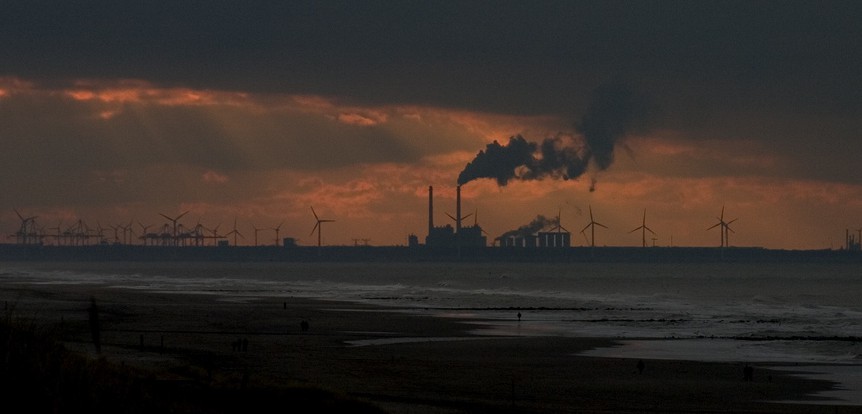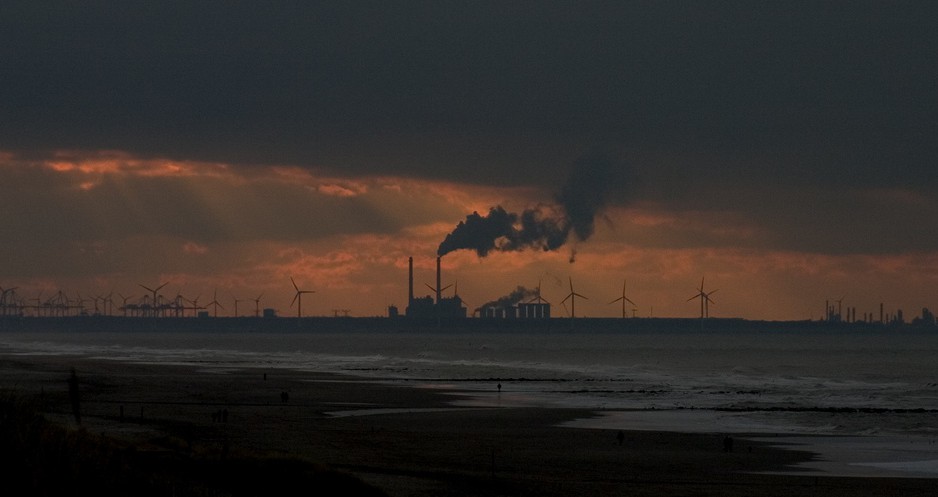
Never had a phone call made such an impact on her. It was like an electroshock. After a restless night, she still felt dizzy from the news she had heard. She pinched herself and smiled; « This is not a dream » she thought, « this is for real! ». She still hadn’t swallowed the fact that she, Helena Stavriokis, had won the Nobel Prize.
Helena felt uneasy as she climbed the stairs to her plane for Stockholm: a plane all to herself. Never had she been indulged in such a luxury; « Am I that important? » she wondered. She sat at the window of her plane, watching the clouds invade the view as the hum of the reactors was soothing her. She could picture herself five years ago, the 5th of May 2025, doubtful and uncertain at the launching of her project; an invention called « Pull Power from Pollution ». The PPP was a small-scale device that was placed on buildings to convert the CO2 sucked from the common air into energy.
The PPP was definitely overshadowing all the other sustainable energy industries. Beyond the fuss that was generated by this new competitor, they could all sleep on both ears as they knew that it wasn’t going to be a long lasting product. The use of the device would decline at the same rate as the pollution would. « In 50 years’ time, the PPP will eradicate any hint of pollution » had speculated a renowned German researcher. Nobody was really concerned about the future disappearing of the PPP; new viable sources of energy would emerge as the competitiveness within Europe kept growing. Something more important stood out: pollution was not going to jeopardize the future of our children anymore.
With the smashing success of her invention after only five years’ time, she realized how silly it was of her for having been so doubtful at the beginning. Europe had reached, two years beforehand, the goals set for 2030: diminish by 40% the Green Gas Emission, and boost by 27% the Energy Efficiency and the Renewable Sources. Helena was lucid, she knew it wasn’t only by virtue of the PPP; Europe had made huge improvements on the energy field since the launching of the Energy Union in 2020. Eco-friendly energy technologies had developed massively and our dependence on mineral oil imports were steadily reduced. Energy became safer, more affordable and sustainable; Europe had become the world energy leader, Europe had become even more united!
The clamorous noise reminding her to fasten her belt shoved her out of her thoughts. The plane was landing in only twenty minutes. Helena glanced through the window and noticed the beauty of the city covered in snow. « This will change me from Greece » she told herself enthusiastically. But then, she felt a twinge of sadness thinking about her parents who had never witnessed a single snowfall. Her family got struck really hard by the crisis back in 2008, and as they put their daughter’s will to study before their own needs, they never got the chance to travel. The consequences of the crisis were such that after 6 years, Greece lost a quarter of its GDP. Greece was in debt to its ears and this situation started to build conflicts within Europe as nobody was willing to lend more money. It was dreadful to the point that, silently, Europe was struggling to know if it would end up with a”divorce”. But now, eleven and fifteen years after Helena’s parents’ death, things are different. The Energy Union had driven the creation of jobs across the continent and accordingly unemployment had lowered. Tourism in Greece has been strongly revaluated and the economy went inexorably, but slowly, on the rise. With the PPP, Greece had gained back its former recognition on the international level.
« The Nobel Prize of Physics for the invention that has enabled to transform pollution into energy goes out to Helena Stavrionikis ». « Helena Stavrionikis », her name was resonating inside her head. There was a floating moment where no one moved, nothing happened. She was motionless. All the sacrifices that her parents had suffered from, that made it possible for her to be here, was the only thing she could think about. Helena couldn’t rely on the reassuring gaze of anyone in the audience: she had chosen sciences over the building of a family. Imagining the pride that her parents would have felt seeing her today gave her the strength to get up and receive the honors. How overjoyed they would have been to see a Europe that could rely on Greece, a unified Europe.
About the author:

Alexandra (17) participated at our workshop in Brussels in February 2015. She is a student at the Collège Saint-Michel in Brussels, Belgium.

